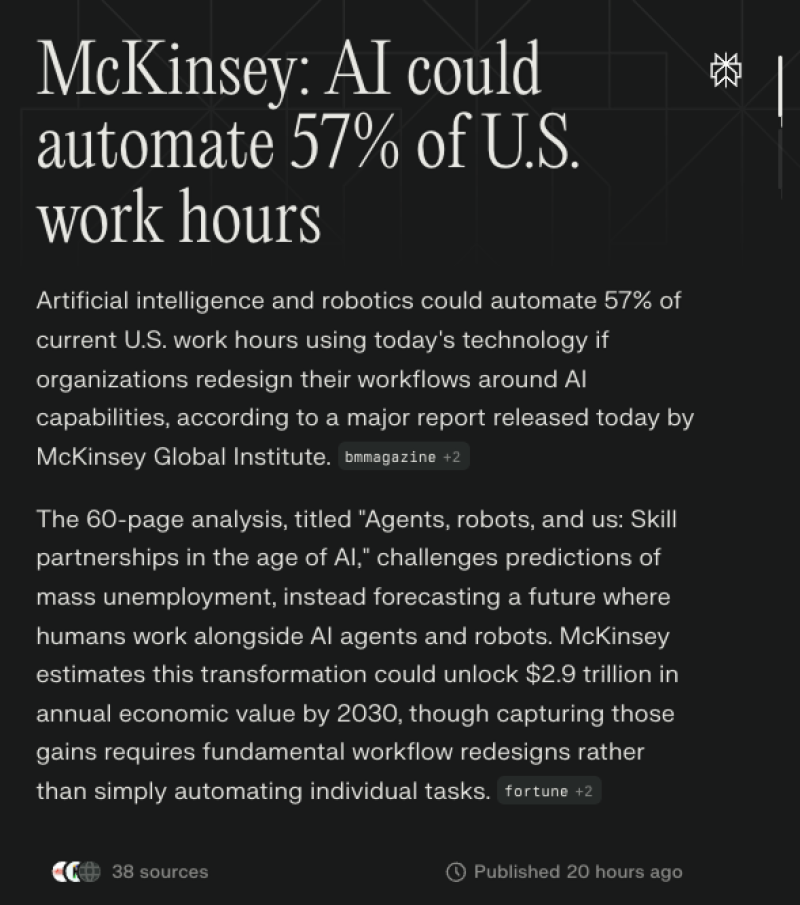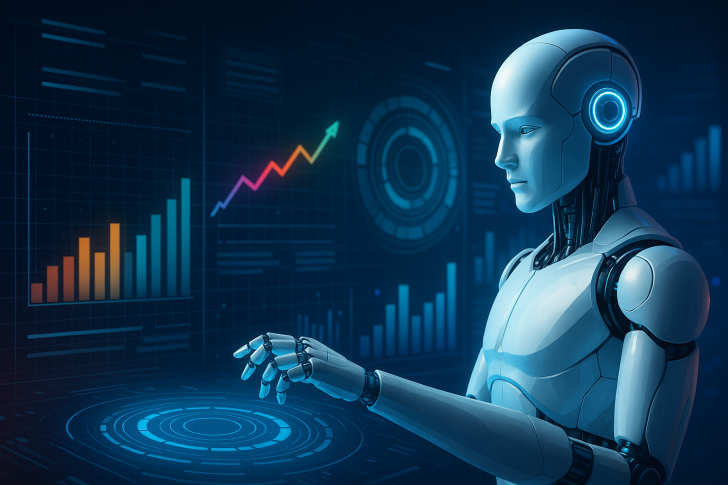⬤ McKinsey Global Institute's newest report explains how AI might change the American workplace in a big way. Their study “Agents, robots and us,” says that today's AI and robotic tools could handle 57 percent of all U.S. work hours, but only if firms rebuild every step of their processes instead of automating a few small tasks.

⬤ This change could release up to $2.9 trillion of economic value each year by 2030. McKinsey does not forecast mass job loss - they expect tasks to change, not vanish. Roughly one third of U.S. jobs will stay hard to automate - above all nursing, caregiving, maintenance and repair work that demands physical presence, human judgment or rapid complex choices. Those roles will tilt toward oversight plus coordination instead of disappearing.
To gain the full economic benefit, firms must redesign how they run - automating separate tasks alone will not deliver the productivity lift.
⬤ The central point - organizations must rethink job shapes, workflow order and the way people and machines share work. Industries that rely on fixed steps may adopt AI quickly - service heavy sectors will move more gradually. McKinsey presents AI as a basic shift that re creates whole business systems once it is woven in correctly.
⬤ Those results count for investors and managers who gauge AI's effect on output but also staffing. As more firms roll out AI tools - many built on NVIDIA hardware - expectations for production levels and labor change keep rising. The forecast value points to large structural moves ahead as AI turns into a core part of the U.S. economy.
 Eseandre Mordi
Eseandre Mordi

 Eseandre Mordi
Eseandre Mordi


